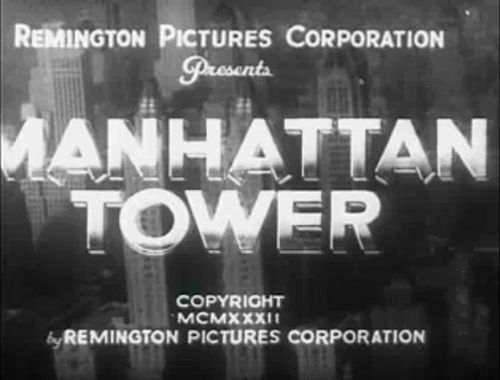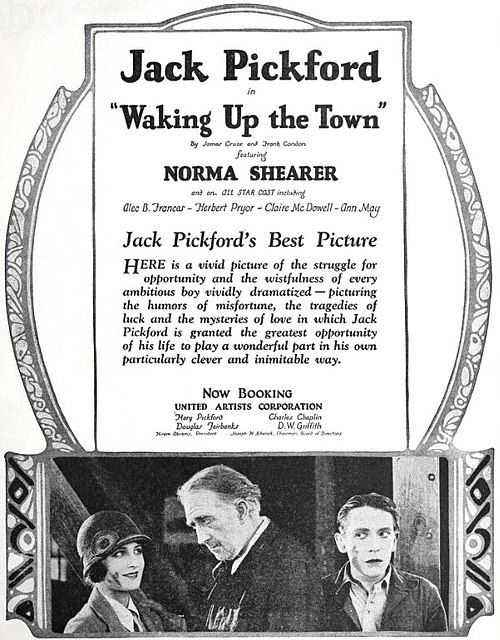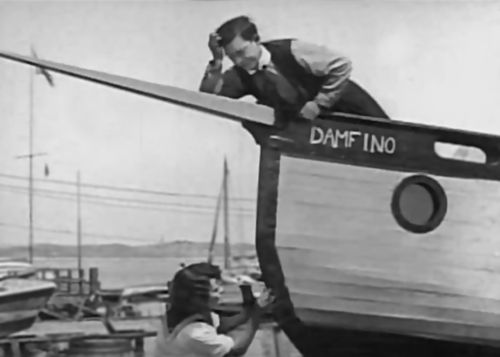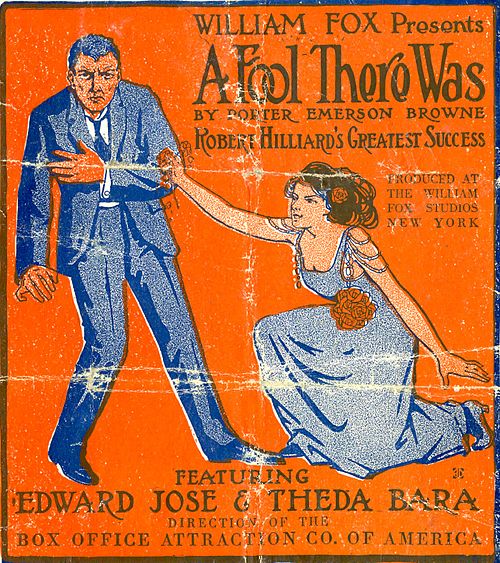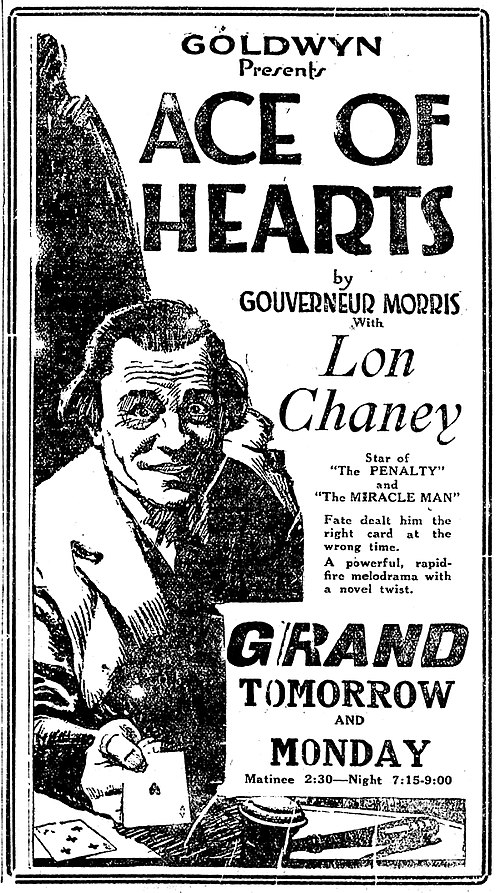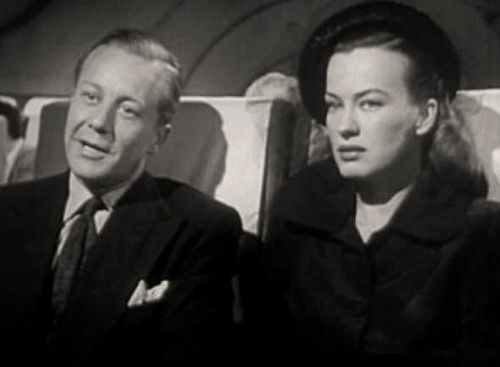Advertisement
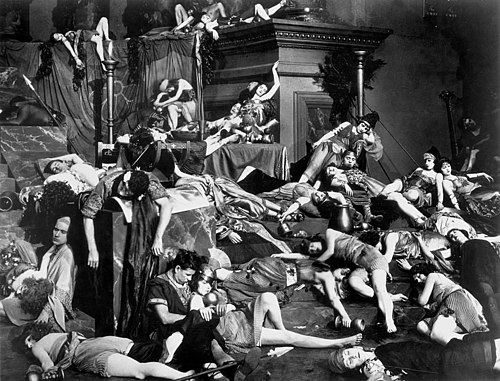
Image source: Wikimedia Foundation (wikimedia.org)
Download Movie [Video Format: MP4]
Movie Source: Internet Archive (archive.org)
Advertisement
Advertisement
Manslaughter
1922
From IMDb: Society girl and thrill-seeker Lydia causes the death of a motorcycle policeman, and is prosecuted by her fiancé, Daniel, who describes in lurid detail the downfall of Rome. While she's in prison she reforms, and Daniel becomes a wasted alcoholic. Stars: Thomas Meighan, Leatrice Joy, and Lois Wilson
Manslaughter is a 1922 American silent drama film directed by Cecil B. DeMille and starring Thomas Meighan, Leatrice Joy and Lois Wilson (actress).
Plot
File:Manslaughter film 1922 newspaper ad.pngA wild, wealthy woman (Joy) is brought to heel by a sermonizing district attorney after she accidentally hits and kills a motorcycle cop.
Cast
- Leatrice Joy as Lydia Thorne
- Thomas Meighan as Daniel J. O'Bannon
- Lois Wilson (actress) as Evans (Lydia's maid)
- John Miltern as Gov. Stephan Albee
- George Fawcett as Judge Homans
- Julia Faye as Mrs. Drummond
- Edythe Chapman as Adeline Bennett
- Jack Mower as Drummond (policeman)
- Dorothy Cumming as Eleanor Bellington
- Casson Ferguson as Bobby Dorest
- Michael D. Moore as Dicky Evans (as Mickey Moore)
- James Neill as Butler
- Sylvia Ashton as Prison matron
- Raymond Hatton as Brown
- Mabel Van Buren as Prisoner
- Ethel Wales as Prisoner
- Dale Fuller (actor) as Prisoner
- Edward Martindel as Wiley
- Charles Stanton Ogle as Doctor
- Guy Oliver as Musician
- Shannon Day as Miss Santa Claus
- Lucien Littlefield as Witness
Production
According to Leatrice Joy, the filming of the car chase scene was extremely nerve-wracking because she herself had to drive the car, which had been fitted with a platform to support two cameramen and the director, plus equipment. Their safety depended entirely upon her skills as a motorist. "It is hard to believe that such a crude and unsubtle film could come from a veteran like De Mille," said a 1963 Theodore Huff Society program note for the film, "harder still to believe that this came from the same year that Orphans of the Storm, Down to the Sea in Ships", and Foolish Wives. The amateurish and crudely faked chase scenes that start the film are of less technical slickness than Mack Sennett had been getting ten years earlier. Manslaughter is exactly the kind of picture that the unknowing regard as typical of the silent film - overwrought, pantomimically acted, written in the manner of a Victorian melodrama, the kind of film that invites laughter at it rather than with it."< name="Brownlow, K. p. 184"/>When a print was screened by William K. Everson for Joy's daughter's birthday, the star of the film attended and saw it for the first time in forty years. According to Kevin Brownlow, "Miss Joy thought it hilarious."< name="Brownlow, K. p. 184"/>
Category:1922 films
Category:1920s drama films
Category:American films
Category:American drama films
Category:American LGBT-related films
Category:American silent feature films
Category:Black-and-white films
Category:Films directed by Cecil B. DeMille
Category:Paramount Pictures films
Category:Films based on novels
Cecil B. DeMille and Jesse L. Lasky


